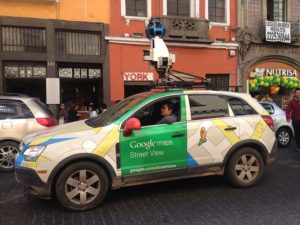
Docket number: 10-md-02184-CRB
The Center for Class Action Fairness (CCAF) objected on behalf of David Lowery to a class action settlement that provides nothing to class members, but $13 million for attorneys’ fees and to advocacy groups that plaintiffs’ attorneys and defendant Google have a history of supporting.
The settlement resolves claims that Google’s Street View cars illegally collected data from unencrypted WiFi networks between 2007 and 2010, when the practice became public. Plaintiffs sued in 2010 under the Electronic Communications Privacy Act, among other statutes, which provides statutory damages of up to $10,000 per occurrence.
Even though millions of class members are thought to have had their WiFi “payload data” collected by Google, the 2018 settlement provides only $13 million, an amount that plaintiffs claim would infeasible to distribute to class members. The settlement instead gives away class member money as so-called cy pres to uninjured non-profit advocacy groups. Cy pres is an old legal doctrine that roughly translates to “as close as possible,” and it originated in trust law to allow a court to reform a trust or charitable gift that had become impossible to administer according to its terms. More recently, the doctrine has been used by courts to distribute unclaimed dollars in class action settlements to a third-party organization rather than allowing the defendants to keep the funds when those funds cannot be feasibly distributed to the class.
Much like the Google referrer case that CCAF argued before the Supreme Court, plaintiffs’ attorneys have achieved a settlement worth a fraction of pennies-on-the-dollar, then argued that the modest recovery excuses them from actually having to benefit class members.
There are several problems with resorting to cy pres in this case. In the first place, $13 million is easily distributed to class members through an ordinary claims process. Numerous nationwide class action settlements have distributed similar amounts of money (or less) to broadly-defined classes. CCAF has successfully objected to other settlements where the parties incorrectly argued that it was infeasible to distribute money, resulting in millions of dollars more going to class members. (For example, in Fraley v. Facebook and Baby Products.) To the extent that plaintiffs argue that it’s impossible to ascertain whether claimants had their WiFi data collected, class certification should not be allowed at all because ascertainability is one of the bedrock requirements of class action procedure.
Even if cy pres were appropriate, the non-profits selected in this case are not the “next best” alternative to paying class members, but instead seem to be a laundry list of mostly already-wealthy projects that Google and the plaintiffs’ attorneys already like to support. Money is fungible; if MIT’s program was worth supporting, the Institute could peal off some of its $17.4 billion endowment to fund it. Either the program is not worth supporting, or the settlement constitutes a wealth transfer from class members of modest means to wealthy elite institutional endowments.
The selection of the cy pres recipients also presents a First Amendment problem. In essence, class member money is being forcibly donated to subsidize speech that many class members disagree with. As Lowery explains, one of the cy pres recipients “has essentially acted as an arm of Google’s public policy operation in Washington, D.C. [and] regularly takes stands on copyright issues that support Google at the expense of musicians like me…” The class action opt-out process does not cure the problem with class members being compelled to support speech they oppose.
The court conducted a hearing on February 28, 2020, and issued a final approval for the settlement on March 18. Lowery appealed to the Ninth Circuit, which affirmed final approval and the fee award.
On June 3, 2022, Lowery petitioned the Supreme Court for review. Attorneys General for twenty states filed in support of his petition on July 7.
Case Documents
| Description | |
| Jul 07, 2022 | AMICUS BRIEF of Twenty Attorneys General in Support of Petitioner Lowery |
| Jun 03, 2022 | SUPREME COURT PETITION by David Lowery for Writ of Certiorari |
| Feb 03, 2022 | ORDER denying rehearing |
| Jan 20, 2022 | AMICUS BRIEF of Eight Attorneys General in Support of Petition |
| Jan 10, 2022 | PETITION for Rehearing and Rehearing En Banc |
| Dec 27, 2021 | OPINION affirming settlement and fee award |
| Dec 03, 2020 | REPLY BRIEF of David Lowery |
| Aug 19, 2020 | AMICUS BRIEF of 13 States in Support of Objector-Appellant |
| Aug 12, 2020 | OPENING BRIEF of David Lowery |
| Mar 18, 2020 | ORDER Approving Settlement |
| Jan 20, 2020 | AMICUS BRIEF of Nine Attorneys General in Support of David Lowery Objection |
| Jan 20, 2020 | OBJECTION of David Lowery |
